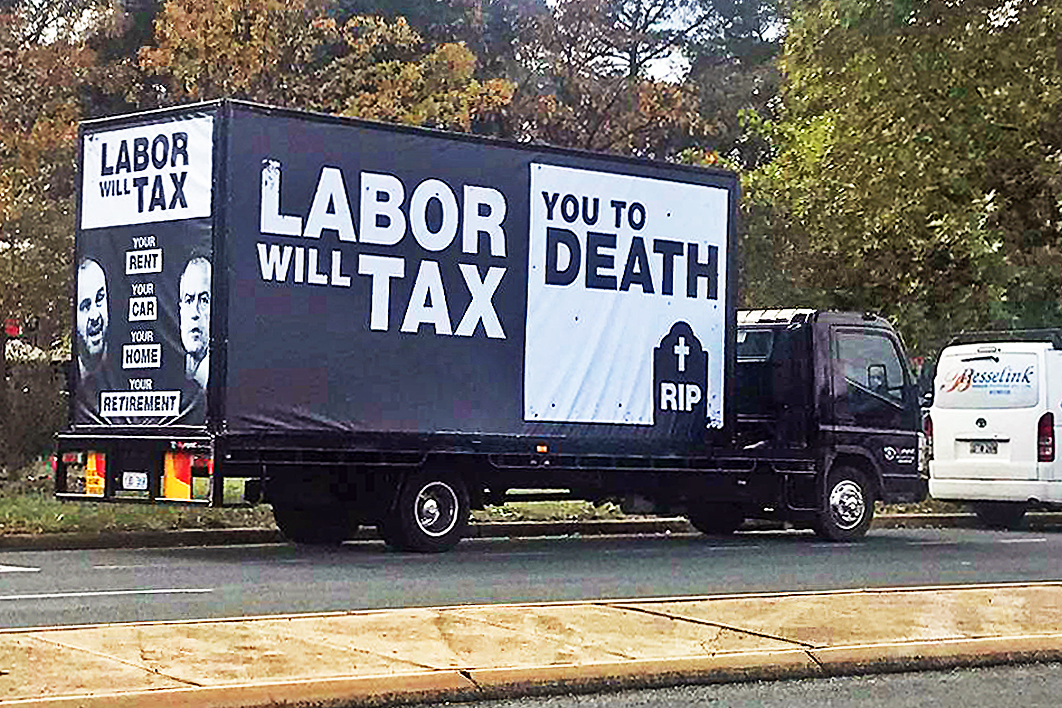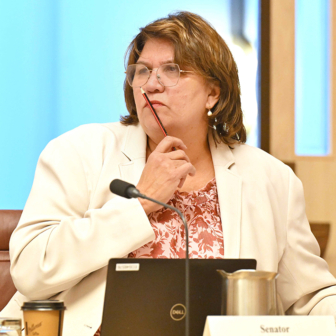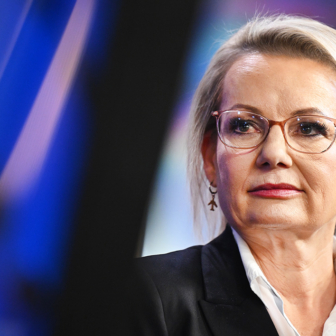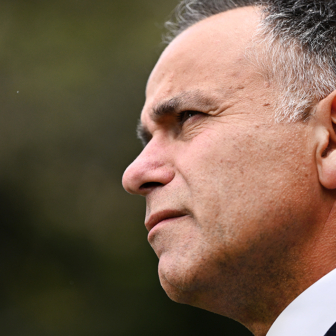The return to power of a government that was generally written off by independent and informed pundits is a rare event indeed, so the 2019 Australian federal election seems destined for a place in history alongside Paul Keating’s victory in 1993 and the re-election of Harry Truman in 1948. In contrast to 1993, however, no single campaign episode plainly stood out as a turning point, and as the dust settled the focus was more on the role played by negative advertising of notable volume and disputed veracity. This, in turn, has led to discussion of whether a case can be made for legislation to require “truth” in political advertising.
In Australia, precedents for such laws span a century. For their origin we need to go back to 1917, and the run-up to the second conscription referendum, when William Morris Hughes’s government introduced a regulation (under the War Precautions Act) that criminalised the behaviour of:
any person who, on or before the polling day for the Referendum, makes or authorizes to be made, verbally or in writing, any false statement of fact of a kind likely to affect the judgment of electors in relation to their votes, or who prints, publishes, or distributes any advertisement, notice, hand-bill, pamphlet or card containing any such statement.
adding for good measure that:
If any person has been convicted under this Regulation of making any false statement, no person shall make, repeat, print, or publish the same statement, or a statement substantially the same…
As Hughes’s biographer noted, this “clearly left a wide discretion to the censors.”
There the matter rested until the 1980 federal election, which gave rise to a number of petitions to the High Court sitting as the Court of Disputed Returns. Some of them, in a strange historical parallel, were motivated by concerns about claims during the campaign that (as the court summarised it):
the Labor Party was committed to the introduction of a wealth tax or capital gains tax which would affect not only the wealthy, but also persons who had, by means of superannuation, insurance policies or small investments, made savings intended to provide for their old age or for their children, and would affect also hundreds of thousands of Australians who owned modest homes which had risen in value.
The High Court ultimately dismissed all the petitions, holding that the Commonwealth Electoral Act’s prohibition on making an “untrue or incorrect statement intended or likely to mislead or improperly interfere with any elector in or in relation to the casting of his vote” did not cover matters that could affect the elector’s decision for whom to vote but only the process of recording the vote so decided on. That ruling gave rise to concerns reminiscent of those being voiced today, and led Labor to adopt a policy to legislate for truth in advertising in the broader sense. That policy was implemented via amendments to the Electoral Act based on Hughes’s 1917 regulation, which came into force on 21 February 1984.
Those changes were not examined by the federal parliament’s Joint Select Committee on Electoral Reform in its wide-ranging inquiry which followed the 1983 election; it focused on them only after they had been enacted. By late 1984, on the basis of concerns set out in the committee’s second report, the major political parties had had a change of heart, and the new provisions were repealed immediately before the 1984 election.
As a result, the only broad truth-in-advertising requirements for parliamentary elections are those applying in South Australia and the Northern Territory. The South Australian provisions, in particular, attracted international interest during disputes over statements made by Brexit supporters in advance of the 2016 referendum on the United Kingdom’s EU membership.
Reintroducing such laws for federal elections in Australia, while manifestly appealing from an ethical perspective, could give rise to some serious complexities.
First, the campaign environment has changed radically since 1984, and beyond recognition since 1917. In bygone days campaigning was done either face to face or in printed form (supplemented later by broadcasting), and it was relatively simple to distinguish “campaigning” from personal communication between individuals. But the rise of social media has badly blurred that distinction, and we now frequently see at election time a proliferation of “viral” messages, which are not necessarily funded by parties or candidates nor distributed by official campaigners, are sometimes almost impossible to trace back to their origins, and may be shared on internet platforms hosted outside Australia.
The ostensibly unofficial, personal nature of such communications also gives rise to concerns that attempts to limit them could run afoul of the implied freedom of political communication elaborated by the High Court in recent years.
Second, the distinction between statements that are true and those that are false is not always an easy one to make. To say that a party “is committed” to taking a particular action in government may well be true or false; to say that it “will” implement such a policy is likely to be either a statement of the speaker’s opinion or a prediction of the future, neither of which could be said to be contemporaneously either true or false. Politicians’ denials of allegations do not make them untrue, as has been amply demonstrated in recent years, for example by Tony Abbott’s “no cuts” statements in 2013. When such grey areas exist, it would not be difficult for parties and candidates to circumvent the spirit of any ban simply by phrasing their statements with more care.
Third, there are real practical difficulties in implementing such bans. The political neutrality of law enforcement agencies is by no means universally accepted, especially since the Australian Federal Police chose to inject themselves into the 2016 election campaign by raiding senator Stephen Conroy’s office, with the media mysteriously tipped off. This points to a need for a respected and strictly independent body to handle complaints, but the obvious organisation to do that, the Australian Electoral Commission, made it clear as long ago as 1996 that the area would be such a minefield that any complaints should be dealt with by a standalone Election Complaints Authority, so that the broader credibility of the administration of elections would not be compromised.
At present the AEC has no general power to order even misleading advertisements currently proscribed by the Electoral Act to be taken down; it can only seek a Federal Court injunction to do so, a process typically too slow to respond effectively to a firestorm of viral misinformation or to outrages arising only on polling day. The 2019 election also illustrated the particular problem of posters appearing on polling day in languages other than English: the need to obtain an independent and accurate translation of such messages before any court action could be taken would almost suffice to rule that out as an enforcement option, especially where nuances of translation might be a matter of dispute.
Fourth, there is a real danger that provisions proscribing untrue statements could be “weaponised” by campaigns. Parties are already on the lookout for the chance to throw their opponents’ campaigns off balance by lodging complaints with the AEC about such things as a failure to authorise advertisements properly; but the opportunity to characterise political rivals as untruthful would seem likely to be even more attractive. At worst, the body responsible for administering the provisions could find itself overwhelmed, especially since many disputes would likely turn on factual issues requiring investigation well beyond the simple question of whether an authorisation had been printed on a pamphlet. Statements can be easy to make but difficult to fact-check.
Here, it is also important to note that past legal requirements for truth have not been explicitly limited to statements about parties’ policies: it is not difficult to imagine that complaints could be generated about statements in advertisements that, for example, affirmed the role of human activity as a contributor to climate change, or asserted the safety of vaccination.
Finally, it is worth noting that in any regulatory regime for elections, the most effective provisions are those that deter so effectively that the behaviour they seek to prevent seldom arises. For example, in Australia, as in most countries, vote-buying is illegal, but it also is so inconsistent with societal norms that it is almost never attempted; the disgrace of being caught would impose political costs beyond any conceivable benefits, at least at a federal election.
It is by no means clear, by contrast, that there is much political cost associated with false advertising these days. Voters seem to feel great resentment when they perceive that a government has broken a promise that directly affects their interests — not imposing a carbon tax, for example, or cutting funding to hospitals or the ABC. But one seldom sees a comparable level of public outrage about disputed statements that politicians make about other politicians or parties. It is difficult to see reforms gaining much momentum unless the public is prepared to get behind them. •




